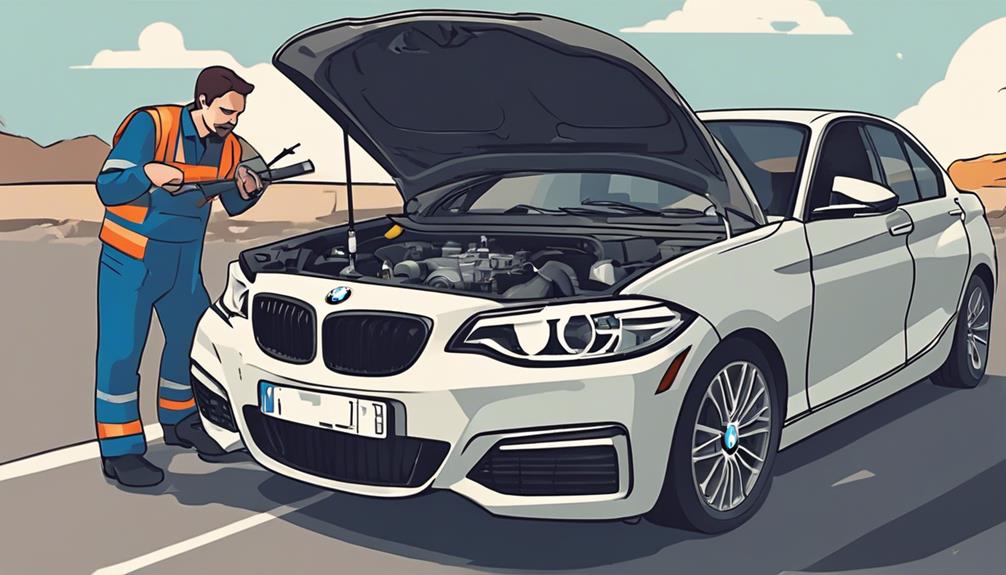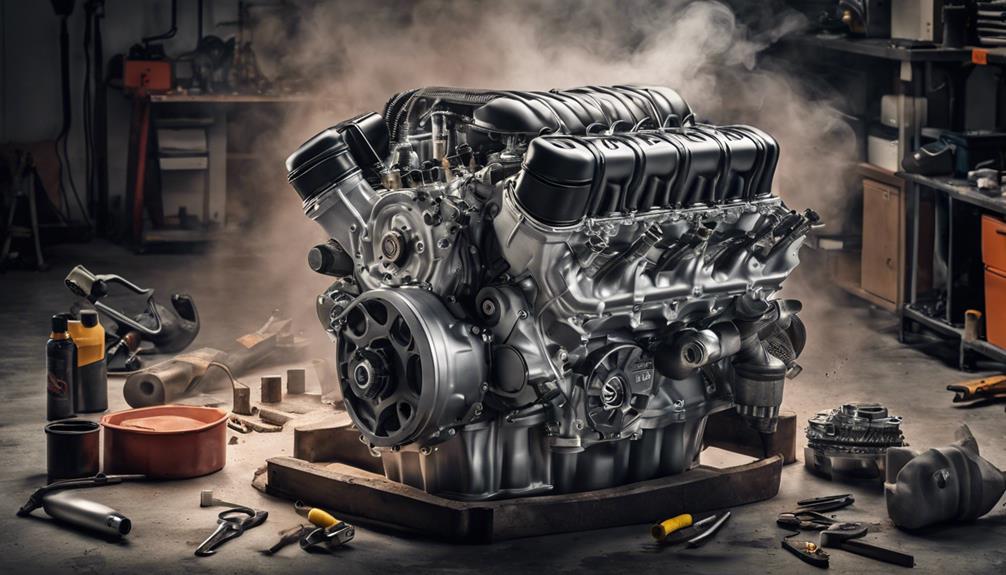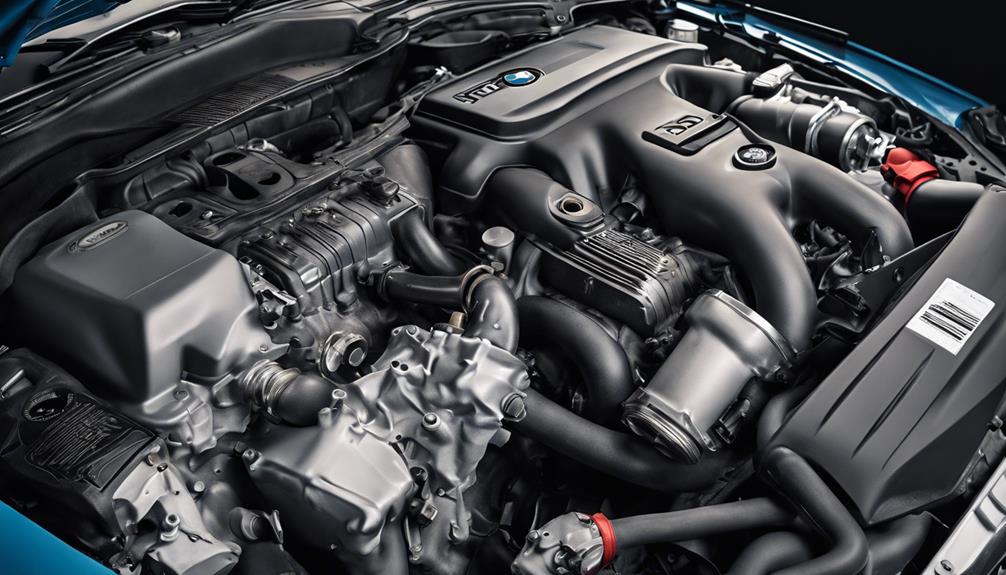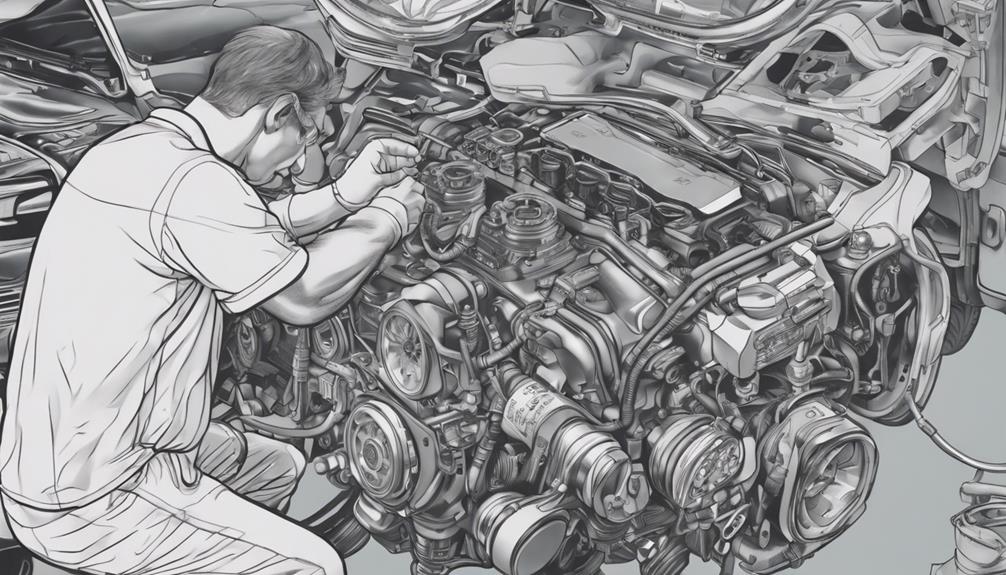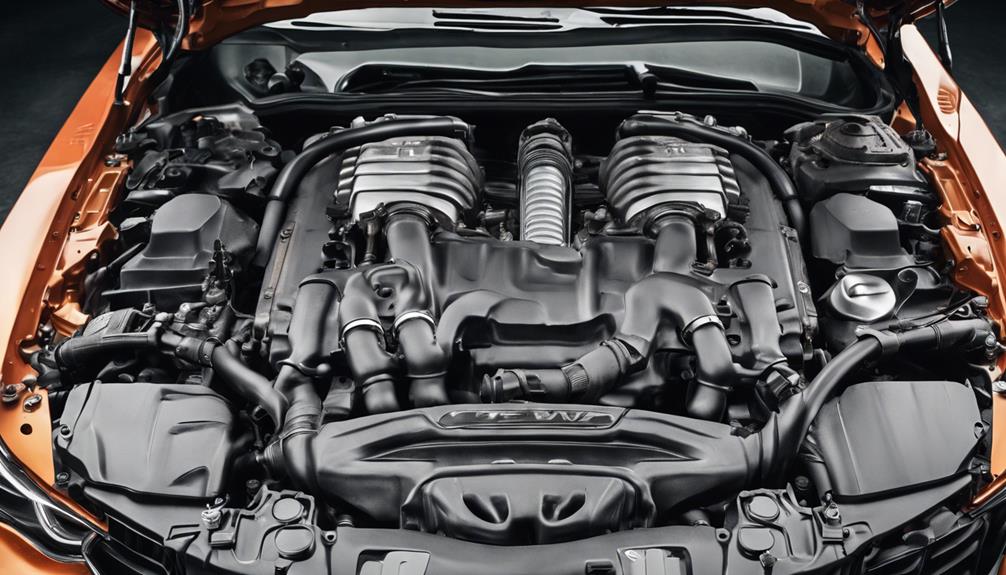If you own a BMW 218d, you should watch out for EGR cooler malfunctions that impact performance and emissions. Seatbelt mechanism issues can compromise safety; prompt replacements are essential. Keep an eye on crankshaft sensor troubles to avoid engine stalling. Stay alert to rear axle bolt problems to ensure safe driving. Power steering failures can be hazardous; timely inspection is vital. Look out for airbag module faults to guarantee proper deployment. Be wary of turbocharger concerns for consistent power delivery. Troubleshoot diesel particulate filter for best performance.
Proactively address engine overheating and electrical system failures to prevent costly repairs. Familiarize yourself with these common issues to keep your BMW running smoothly.
Key Takeaways
- EGR Cooler Malfunctions impact performance and emissions, requiring regular maintenance.
- Seatbelt Mechanism Issues compromise safety and should be promptly replaced.
- Crankshaft Sensor Troubles signal engine issues, necessitating immediate replacement.
- Rear Axle Bolt Problems require regular inspection and torque specifications adherence.
- Power Steering Failures can compromise safety; prompt inspection is essential.
EGR Cooler Malfunctions
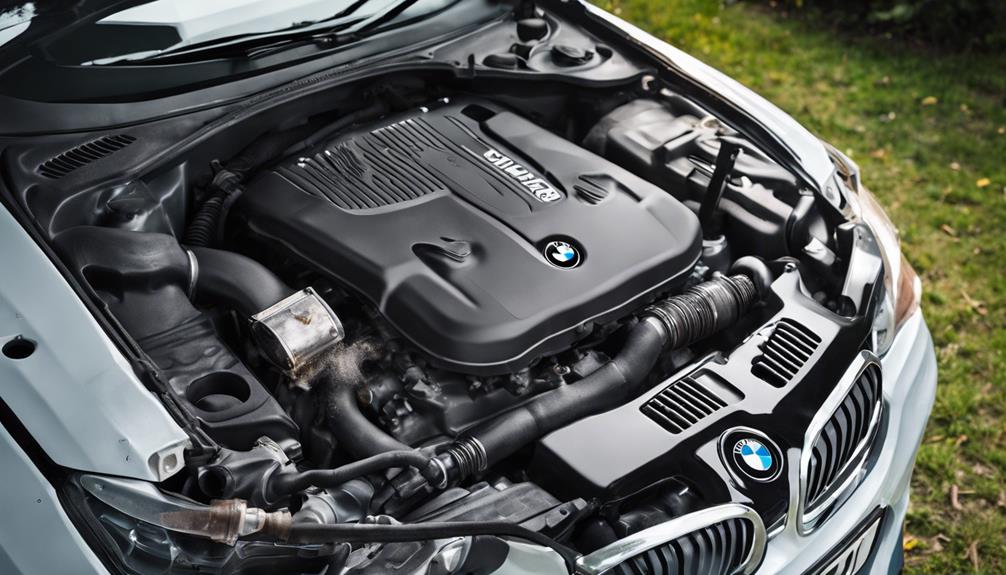
If you own a BMW 218d, be aware that EGR cooler malfunctions are a prevalent issue that can impact performance and may require immediate attention.
The diesel particulate filter (DPF) can be affected by these malfunctions, leading to decreased efficiency and potential engine issues. EGR coolers are essential components that help regulate emissions and improve fuel economy in diesel engines.
When these coolers malfunction, they can cause leaks, which may result in engine performance problems and increased emissions. BMW has issued recalls for specific production dates of affected 2 Series vehicles due to these concerns.
To address EGR cooler issues, it's important to have your BMW 218d regularly inspected and maintained by a qualified technician. If you suspect any problems with your EGR cooler or notice a decrease in performance, contacting a BMW dealer for inspection and potential repairs is advisable to ensure peak functioning of your vehicle.
Seatbelt Mechanism Issues
If you own a BMW 218d, you may encounter issues with the seatbelt mechanism. Common problems include the seatbelt not locking properly, failing to retract, or triggering the seatbelt warning light.
These problems can compromise your safety, especially in the event of a sudden stop or collision.
Seatbelt Not Locking
Wondering why your BMW 218d's seatbelt isn't locking properly? Some common issues with the seatbelt mechanism in certain BMW 218d models can lead to this problem. Here are some insights to help you understand this situation better:
- The seatbelt mechanism may fail to lock as intended, causing safety concerns.
- Cold weather might exacerbate the problem, making it more noticeable during winter.
- This issue tends to affect BMW 218d cars produced within specific manufacturing date ranges.
- To address this issue, consider having the faulty seatbelt mechanism replaced promptly to guarantee your safety on the road.
If you're experiencing difficulties with your seatbelt not locking, contacting a BMW dealer can provide you with tailored assistance and guidance on necessary repairs.
Seatbelt Not Retracting
The seatbelt mechanism in BMW 218d vehicles may exhibit issues with retracting properly, potentially leading to safety concerns for drivers. If you find that your seatbelt isn't retracting as it should, especially in colder weather, it could be due to a faulty seatbelt mechanism.
Certain models of the BMW 218d produced within specific dates might be more prone to this problem. To address this issue, it may be necessary to have the seatbelt mechanism replaced. It's important to consult with a BMW dealer to determine if your vehicle is affected by this issue and to explore potential solutions.
Ensuring that your seatbelt functions correctly is vital for your safety on the road.
Seatbelt Warning Light
Experiencing a persistent illuminated seatbelt warning light in your BMW 218d may signal underlying seatbelt mechanism issues that necessitate prompt attention. If you encounter this problem, here are some key points to bear in mind:
- A faulty driver's side seatbelt mechanism could be the root of the warning light.
- Difficulty in using the seatbelt, especially in cold weather, might indicate a malfunctioning mechanism.
- Check if your BMW 218d falls within the specific production dates of affected models.
- Resolving the warning light issue may involve replacing the seatbelt mechanism.
For detailed assistance and information on affected BMW 218d cars, it's advisable to consult with a BMW dealer promptly.
Crankshaft Sensor Troubles
If encountering engine misfires or rough idling in your BMW 218d, addressing potential crankshaft sensor troubles promptly is important to prevent further engine damage. The crankshaft sensor plays a significant role in monitoring the speed and position of the crankshaft, providing essential information for ignition timing. When this sensor malfunctions, it can lead to a range of issues affecting engine performance. Below is a table summarizing key information regarding crankshaft sensor problems in the BMW 218d:
| Common Symptoms | Potential Issues | Recommended Action |
|---|---|---|
| Engine misfires | Faulty crankshaft sensor | Replace sensor |
| Rough idling | Difficulties starting engine | Address promptly |
| Engine stalling | Engine damage risk | Consult a mechanic |
It is important to address any signs of crankshaft sensor troubles promptly to prevent more severe engine complications. If you notice any of these symptoms, consider having your BMW 218d inspected by a professional to diagnose and resolve the issue effectively.
Rear Axle Bolt Problems
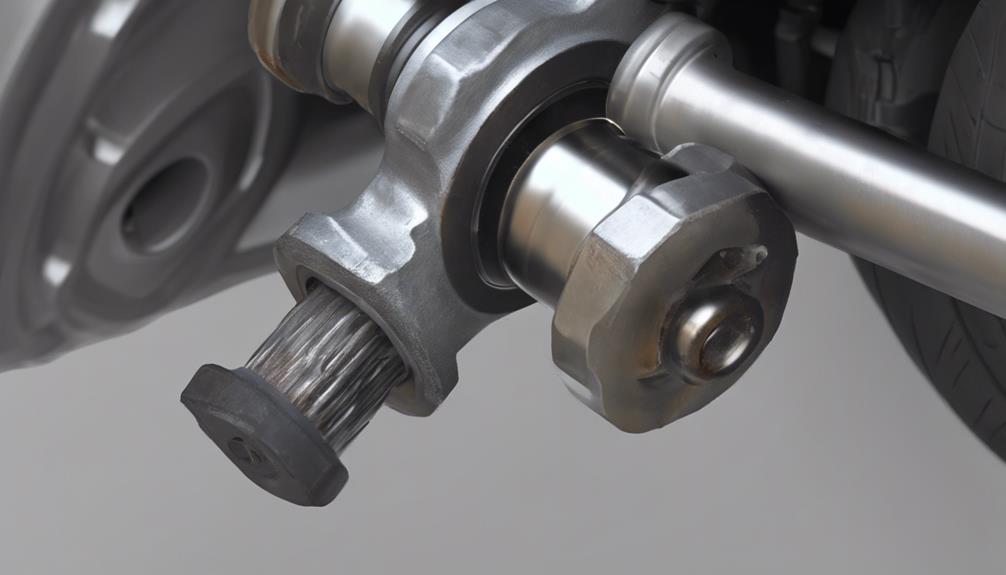
If you own a BMW 218d, you should pay close attention to potential rear axle bolt problems. The torque specifications of these bolts, their regular inspection, and maintenance are essential for safe driving.
Ensuring prompt access to replacement parts through a BMW dealer can help address any rear axle bolt issues effectively.
Bolt Torque Specifications
To guarantee the rear axle bolts on your BMW 218d are securely fastened and prevent potential issues, it's essential to adhere to the correct torque specifications recommended by professionals or BMW dealers. Improper torque settings can lead to rear axle bolt problems, compromising the safety and performance of your vehicle.
Here are some key points to take into account:
- Consult your BMW dealer or a qualified professional for the precise torque specifications.
- Use a torque wrench to ensure accurate tightening of the rear axle bolts.
- Regularly check the torque levels to prevent any loosening over time.
- Following the recommended torque settings will help avoid rear axle bolt failure and maintain the integrity of your BMW 218d.
Inspection and Maintenance
Regularly inspecting and maintaining the rear axle bolts on your BMW 218d is crucial to ensuring safe operation and preventing potential issues. Given the reported problems with rear axle bolts on certain production dates, conducting thorough inspections can help identify any early signs of wear or damage.
It's recommended to address any concerns promptly to mitigate the risk of accidents related to rear axle bolt failure. Consult your BMW dealer to obtain information on whether your vehicle is affected and the necessary repairs.
Replacement Parts Availability
When addressing rear axle bolt problems on the BMW 218d, it's essential to inquire about the availability of replacement parts at authorized BMW dealerships or service centers. Ensuring that the necessary components are accessible will facilitate a timely resolution to the rear axle bolt issues.
Consider the following when dealing with replacement parts for rear axle bolt problems:
- Check with authorized BMW dealerships for availability of specific replacement kits.
- Inquire about specialized tools required for rear axle bolt replacement.
- Consult BMW service centers for expert advice on rear axle bolt solutions.
Remember that proper installation of replacement rear axle bolts is critical for the safety and best performance of your BMW 218d.
Power Steering Failures
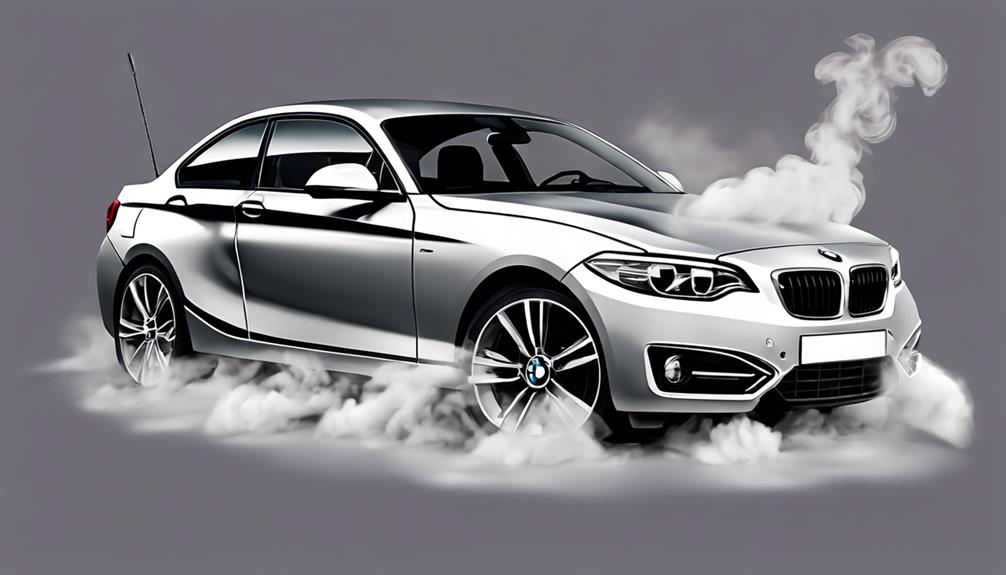
Experiencing heavier steering in your BMW 218d could indicate a potential power steering failure. When the power steering system malfunctions, you may notice that it requires more effort to turn the steering wheel, affecting the overall driving experience.
Power steering problems not only make driving more strenuous but can also compromise the safety of your vehicle. If you encounter such symptoms, it's essential to have the power steering system inspected promptly.
Faulty power steering systems in BMW 218d models often necessitate repairs or replacements to restore peak functionality. To prevent power steering failures in your BMW 218d, regular maintenance and timely inspections are key.
Airbag Module Faults
If you observe the airbag warning light on your BMW 218d, it could indicate possible airbag module faults that may jeopardize your safety in the event of an accident. These faults could impede the airbags from deploying when necessary, putting you at risk of more serious injuries.
Promptly addressing any issues associated with the airbag module is vital to guarantee the effectiveness of your vehicle's safety systems.
Warning Light Issues
Warning light issues in the BMW 218d, particularly related to airbag module faults, can indicate potential safety concerns that require prompt attention from a qualified BMW specialist. When facing airbag module faults, it's essential to address them swiftly to make sure the safety features of your vehicle are fully operational.
Here are some key points to keep in mind:
- Faulty airbag module may trigger warning lights on the dashboard.
- Common symptoms include the airbag warning light staying illuminated.
- Ignoring these warnings can jeopardize your safety in the event of an accident.
- Consult a BMW specialist for diagnosis and repair of airbag module faults promptly.
Taking immediate action and seeking professional assistance is vital to maintain the safety standards of your BMW 218d.
Impact on Safety
Airbag module faults in the BMW 218d can significantly compromise the safety measures designed to protect occupants in the event of a collision. When these faults occur, there's a risk that the airbags may not deploy as intended, leading to an increased likelihood of injury.
Detecting and addressing airbag module faults promptly is essential to guarantee that the safety features of the BMW 218d remain effective. Regular maintenance checks play an important role in identifying any issues with the airbag modules.
Turbocharger Concerns
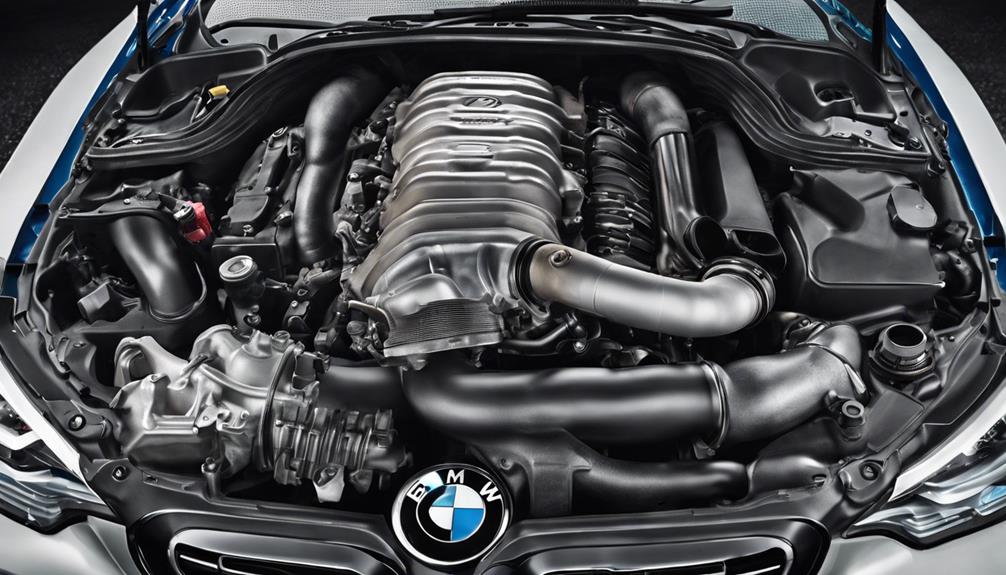
Experiencing turbocharger concerns in your BMW 218d can greatly impact its performance and potentially lead to engine damage. Issues with the turbocharger may manifest as a lack of power or acceleration in your vehicle, affecting its overall drivability. Turbocharger failures in the BMW 218d can be quite costly to address, necessitating prompt attention to avoid further complications. Regular maintenance and timely repairs are vital in preventing turbocharger problems, ensuring the longevity of your BMW 218d's engine.
- Watch out for signs such as loud whining noises, indicating potential turbocharger issues.
- Be cautious if you notice blue or black smoke coming from the exhaust, as this could be a signal of a failing turbocharger.
- Keep an eye on your fuel efficiency – a decrease in miles per gallon could indicate a problem with the turbocharger.
- Address any unusual engine sounds or performance issues promptly to mitigate possible turbocharger concerns.
Diesel Particulate Filter (DPF) Troubleshooting
If the Diesel Particulate Filter (DPF) in your BMW 218d becomes blocked, it can result in reduced engine performance and increased fuel consumption. To address DPF issues, it's important to understand the warning signs and take preventive measures. Here are some common symptoms and solutions for diesel particulate filter problems in your BMW 218d:
| Symptoms | Solutions |
|---|---|
| Reduced engine performance | Regular maintenance and proper driving habits |
| Increased fuel consumption | Cleaning or replacing the DPF |
| Dashboard warning lights | Consult a BMW specialist or dealership |
Taking proactive steps, such as following the manufacturer's maintenance schedule and driving at highway speeds regularly, can help prevent DPF blockages. If you notice any signs of DPF issues, it's vital to address them promptly to maintain top performance in your BMW 218d. Consulting a BMW specialist for diagnosis and repair can make sure that your vehicle continues to run smoothly.
Engine Overheating Issues

The BMW 218d may encounter potential engine overheating issues attributed to a faulty cooling system. When facing engine overheating problems, it's essential to address them promptly to prevent serious damage to your vehicle.
- Common Causes: Engine overheating in the BMW 218d can often be traced back to issues with the thermostat or water pump.
- Warning Signs: Watch out for indicators such as a rapidly rising temperature gauge or steam emanating from the engine bay, suggesting a potential overheating problem.
- Potential Damage: Neglecting engine overheating can result in severe consequences like warped cylinder heads or a blown head gasket, necessitating costly repairs.
- Preventive Measures: Regular maintenance checks and timely repairs play an important role in preventing engine overheating issues, ensuring the longevity of your BMW 218d.
Electrical System Failures
Electrical system failures in the BMW 218d can manifest due to issues with the battery, alternator, or wiring components. These failures may result in various symptoms such as dashboard warning lights illuminating unexpectedly, headlights dimming while driving, or experiencing difficulty starting the vehicle. Faulty sensors, fuses, or modules can also contribute to these electrical system failures. To prevent such issues, it's essential to conduct regular inspections and maintenance of the electrical components in your BMW 218d.
If you encounter any of these symptoms, it's advisable to consult a qualified mechanic or BMW service center promptly. They can diagnose the root cause of the electrical system failures and recommend the necessary repairs. Addressing these issues early can prevent further damage and ensure the safety and reliability of your BMW 218d. Remember, proper care and attention to your vehicle's electrical system can help you avoid inconvenient breakdowns and costly repairs down the road.
Frequently Asked Questions
Is BMW 218d a Good Car?
You'll find the BMW 218d to be a solid choice. It strikes a great balance between performance and fuel efficiency, making it a reliable daily driver. Owners have reported minimal issues with its diesel engine, ensuring a pleasant driving experience.
Is the BMW 2 Series a Reliable Car?
Yes, the BMW 2 Series is a reliable car, with a rating of 92.6%. It ranks 12th in its class. While it has some common issues like interior trim and infotainment, overall, it outperforms competitors.
How Many Miles Will a BMW 2 Series Last?
With proper maintenance and care, a BMW 2 Series can last over 200,000 miles. Regular servicing, oil changes, and prompt issue resolution are key. Factors like driving habits, road conditions, and maintenance history impact longevity.
What Is the Difference Between BMW 220d and 218d?
The BMW 220d offers more power and torque compared to the 218d. It also boasts higher fuel efficiency and may come with additional features. If you value performance, the 220d might be the better choice for you.
Conclusion
To sum up, the BMW 218d may encounter common problems such as:
- EGR cooler malfunctions
- Seatbelt mechanism issues
- Crankshaft sensor troubles
- Rear axle bolt problems
- Power steering failures
- Turbocharger concerns
- DPF troubleshooting
- Engine overheating issues
- Electrical system failures
It's crucial for BMW owners to be mindful of these potential issues and address them promptly to uphold the performance and reliability of their vehicles. Regular maintenance and timely repairs can help prevent these problems from escalating.





